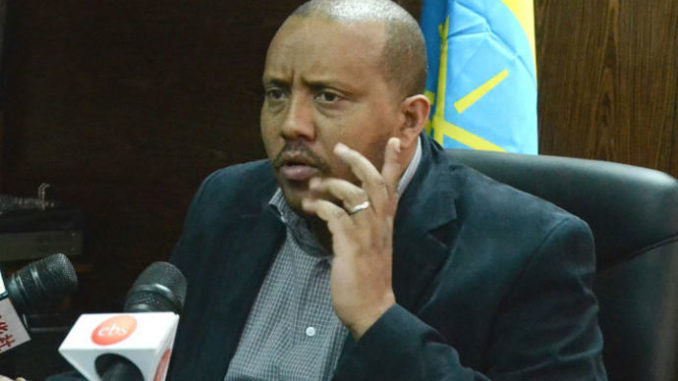
The state of emergency is helping restore stability in Ethiopia, the government says.
“The violence has been controlled and we have created a situation where people are in a position to go about their normal lives without fear of being attacked,” said Communications minister Getachew Reda.
“Many investments and factories are back in business and security and stability have been restored in parts of the country,” he added.
The state of emergency was declared on October 8, following a series of anti-government violent protests.
Was in charge
Mr Getachew disclosed that the Command Post, which was in charge of implementing the state of emergency, was detaining some 1,500 people who were involved in the violence
“The rehabilitation could take a week or weeks,” he said, indicating that illegal weapons had also been collected from the violence areas.
The rehabilitation mainly involves lecturing the detainees on the constitution as well as engaging them in physical exercises, according the minister.
Will benefit
“What we have now is more or less a stable situation. Yes, arrests have been made. People who were involved in killings; who were involved in destruction of property; who have been suspected of committing all sorts of crimes have been handing themselves in,” said Mr Getachew.
“As the state of emergency decree clearly points out, we will definitely have a rehabilitation programme. Those people who have handed themselves over within the prescribed time will benefit from the kind of amnesty that was given them. We can roughly say the number of people who have been arrested as a result of their involvement in destruction of properties has been very significant. And this will continue,” Mr Getachew said.
Social media
He further disclosed that the parliament would soon reconvene and endorse Prime Minister Hailemariam Desalegn’s proposed changes in the government.
The minister said mobile data services and social media would be restored once the government assessed the situation and felt they posed no threat to the implementation of the state of emergency.
The government mainly believes the crisis arose because the youth have a legitimate unmet expectations, an agenda that had been hijacked by diaspora elements.
As state media frequently reports, the government was also pointing a finger at foreign countries such as Egypt and Eritrea, which both countries have been denying.
Source: Today.ng